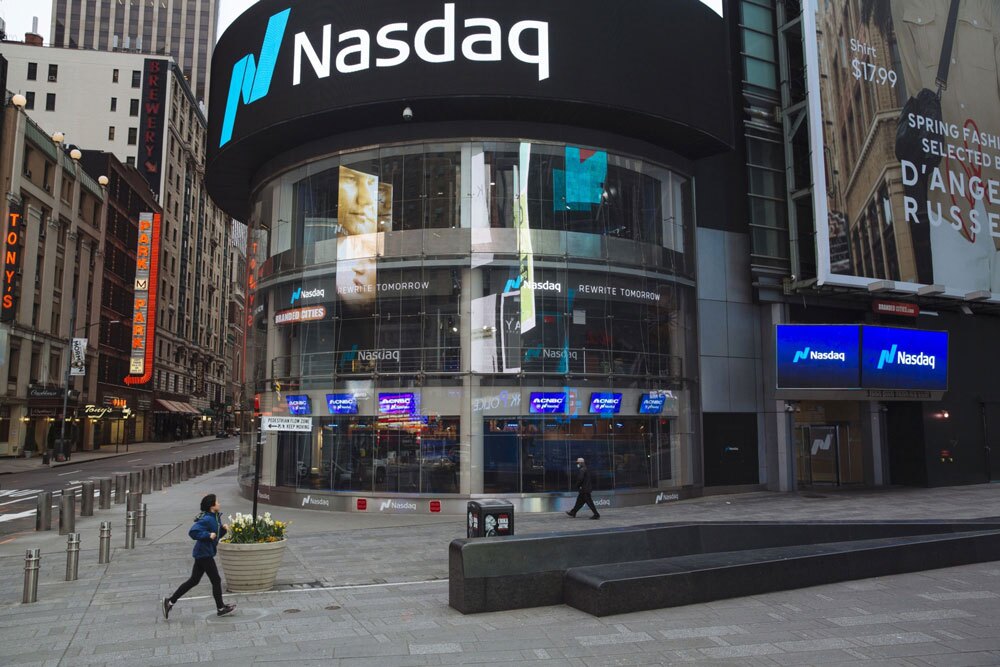It was a quick ending to an effective short-selling battle.
On Friday, the board of Akazoo, a Nasdaq-traded music streaming company, said in a Securities and Exchange Commission filing that it had terminated the company’s CEO, Apostolos Zervos, for cause and named an interim replacement.
The company added that a passel of financial results from 2016 through September should not be relied upon because they may contain errors. It also delayed releasing 2019 financial results.
Akazoo was targeted just two weeks ago for a series of what short seller Quintessential Capital Management described as blatant irregularities. Among other things, managing partner Gabriel Grego cited what he called the company’s wildly inflated user numbers, a $4 million annual cash burn rate, and bogus claims that it operated in countries, including Brazil and Russia, in which it did not.
Akazoo shares tumbled.
A spokesman for Akazoo declined to comment beyond the SEC filing and announcement.
The relatively brief time between New York-based Quintessential’s scathing 45-page research report and the board’s sacking of the CEO undoubtedly reflected in part the obvious nature of some the company’s deceptions. For example, Grego reported that it was Akazoo executives themselves that were writing positive reviews of the company’s apps — and under their own names, too.
The number of reviews generated by Akazoo’s users was exceedingly low compared with the number at rival services like Spotify, Pandora or Sound Cloud. That suggested the number of users it claimed was almost certainly inflated.
The company’s headquarters in London were nowhere to be found when Grego visited, though believes he tracked them down in Athens instead.
The most frequently streamed artists on Akazoo’s Brazilian app, listed in a presentation that was filed with SEC, was comprised of long dead bossa nova stars including Antonio Carlos Jobim, Vinicius de Moraes, and Elis Regina. That made no sense to Grego, given Brazil’s vibrant contemporary music scene.
And Quintessential research showed that prospective users couldn’t even download the Akazoo app in the vast majority of the 25 emerging market countries it claimed to operate in.
“For now, our service is not available in your country,” a message read when Grego or colleagues tried to subscribe. “Please check back, you never know.”
In sum Grego rated the sophistication of Akazoo’s dubious machinations fairly low. “I give it a D,” he said.
Still he understands why investors may have been taken in. “Looking from the outside someone might have given it the benefit of the doubt,” Grego said.
Akazoo acted quickly to investigate Quintessential’s claims, creating a special committee of independent directors to investigate the accusations and hiring the law firm of Latham & Watkins to help it.
“The company was very weak in its defense of our intervention,” says Grego. “It may have to do with the possibility that some shareholders and directors of the company were unaware of the malfeasance.”
Grego, a former Israel Defense Forces paratrooper, said he was pleased with the speed with which events unfolded, avoiding the legal fees and distractions that can accompany drawn-out battles. “I look for the Six Day War, not the Battle of Stalingrad,” he said.
A native of Rome, Grego admitted he didn’t make much of a profit on the short. He said he began shorting Akazoo stock in February, a month they traded at a high of about $5 a share. They closed Friday at $1.16.
Grego doesn’t pause much after notching a victory and is already researching his next short candidate. “I go on to the next one,” he said. “It’s addictive.”



